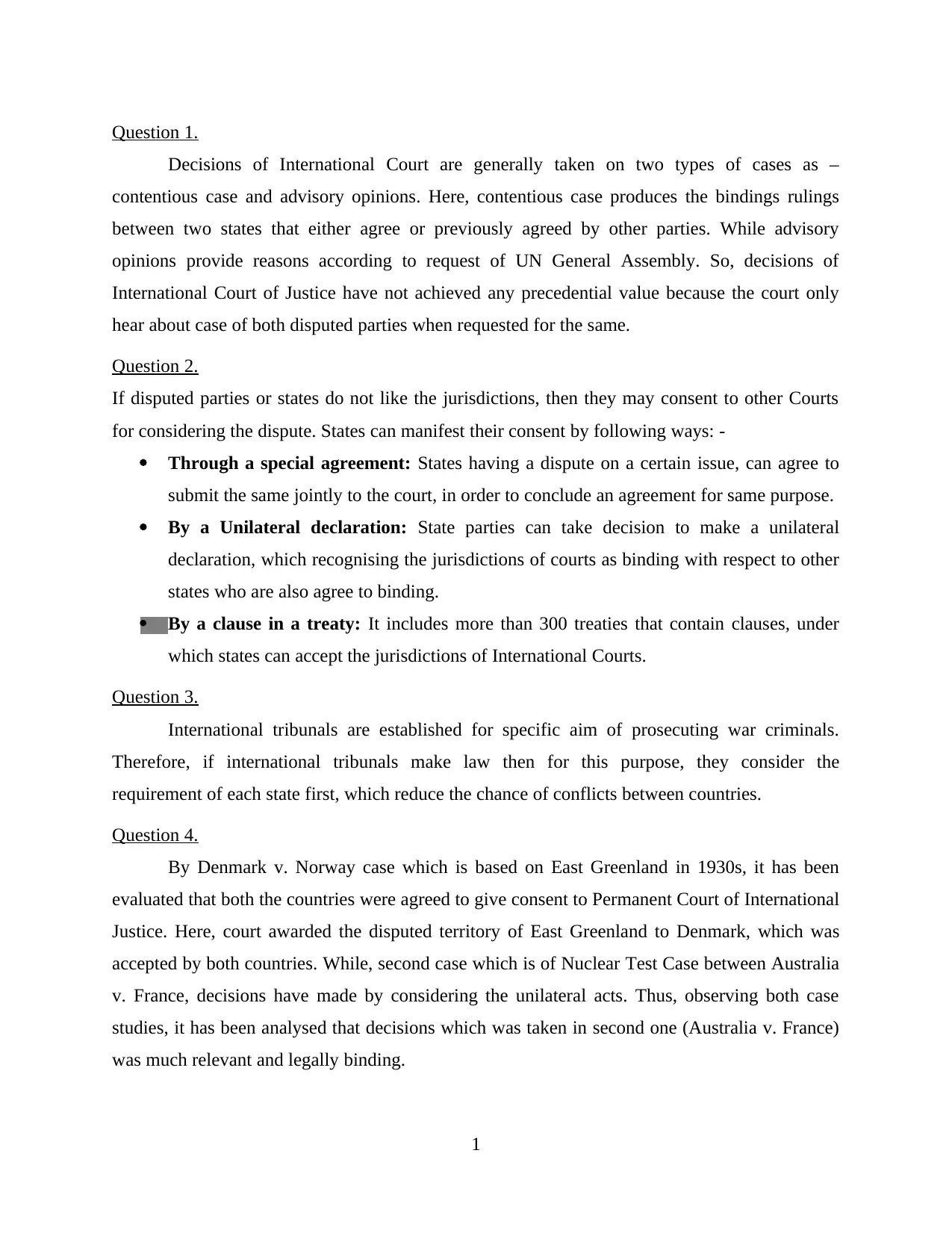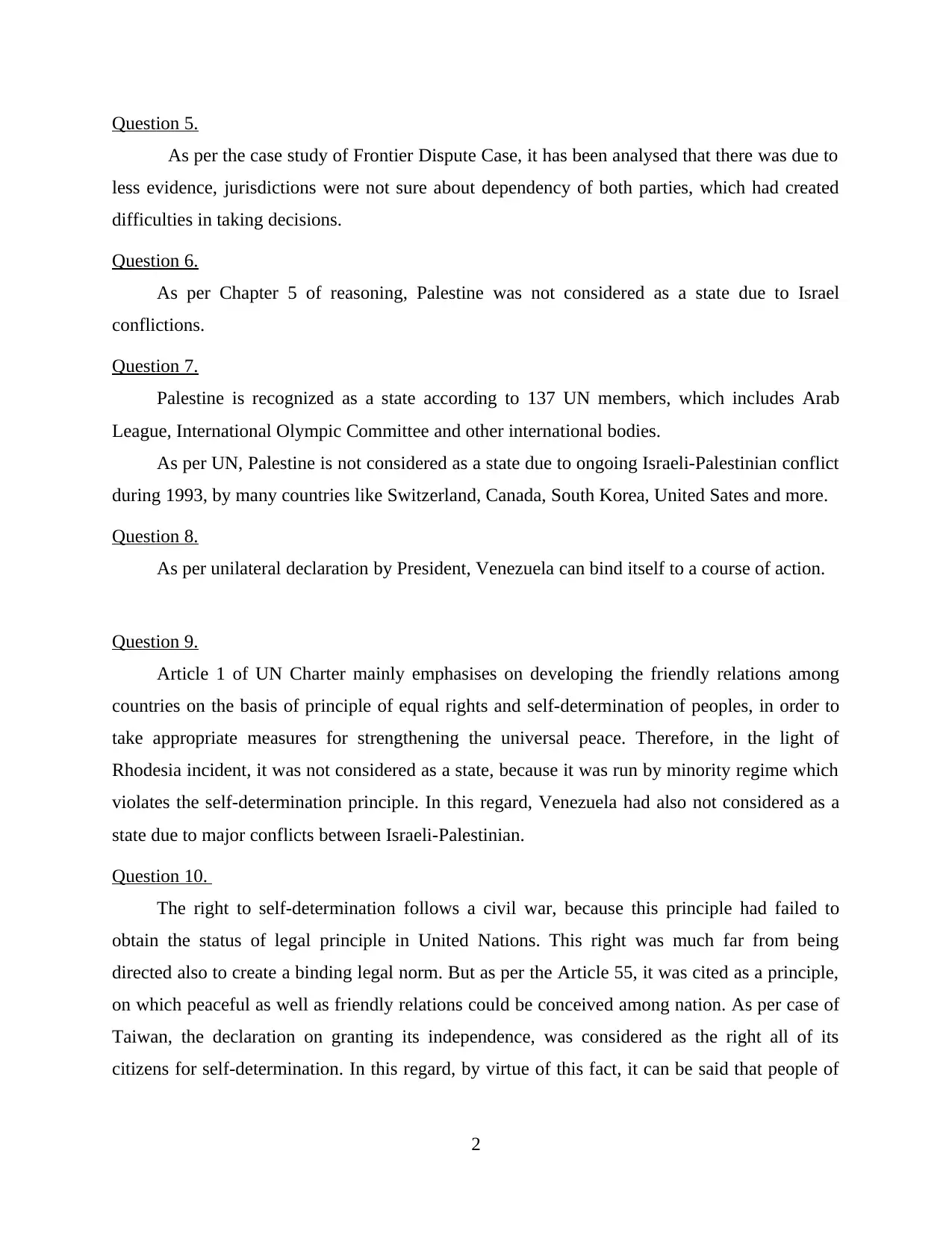International Law: ICJ, Statehood, and Self-Determination Analysis
VerifiedAdded on 2021/02/22
|5
|767
|353
Homework Assignment
AI Summary
This document presents solutions to an international law assignment, addressing key concepts and case studies related to the International Court of Justice (ICJ). The assignment explores the nature of ICJ decisions, differentiating between contentious cases and advisory opinions, and analyzes the precedential value of ICJ rulings. It examines how states express consent to ICJ jurisdiction through special agreements, unilateral declarations, and treaty clauses. The assignment also discusses the role of international tribunals, the significance of the Denmark v. Norway and Nuclear Test cases, and the challenges in determining statehood, as illustrated by the Frontier Dispute Case and the cases of Palestine and Rhodesia. Additionally, the document addresses the principle of self-determination, its application in the context of civil wars, and its relevance to the case of Taiwan, providing a comprehensive overview of international law principles and their practical application.
1 out of 5












![[object Object]](/_next/static/media/star-bottom.7253800d.svg)